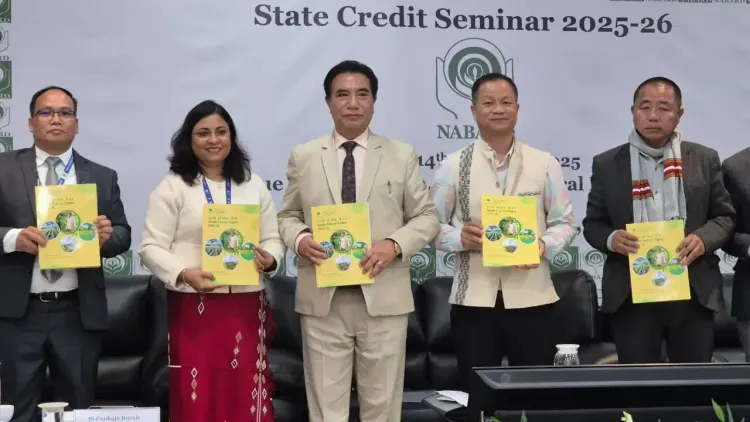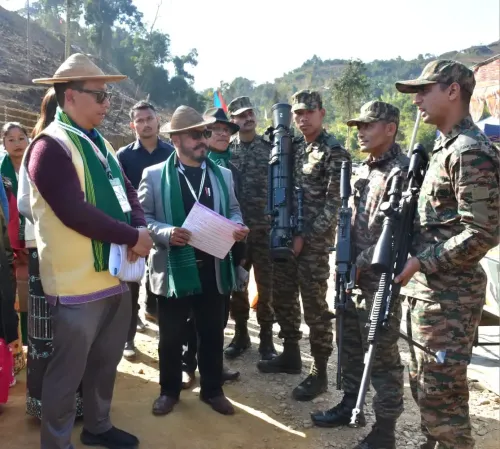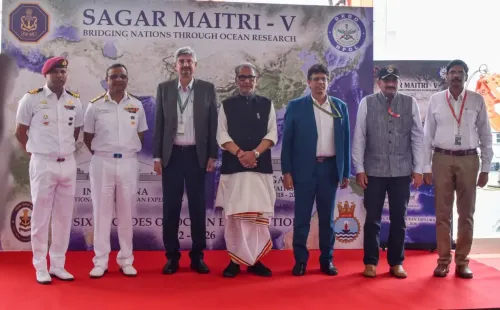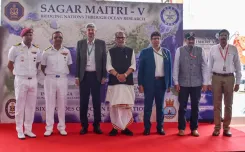Transformative Impact of NABARD on Rural Development: Mizoram CM

Synopsis
Key Takeaways
- NABARD's interventions have reshaped rural communities.
- Support for infrastructure development and micro-enterprises.
- Focus on financial inclusion for marginalized groups.
- Introduction of the 'State Focus Paper-2025-26'
- Increased collateral-free loan limits for farmers.
Aizawl, Feb 14 (NationPress) The Chief Minister of Mizoram, Lalduhoma, stated that NABARD's initiatives have significantly transformed rural communities in the state over the years.
During a seminar, the Chief Minister emphasized that NABARD's various contributions, including support for rural infrastructure development, encouragement of micro-enterprises, and promotion of financial inclusion for marginalized groups, have led to substantial changes in rural areas.
He noted that NABARD has been a vital ally in assisting farmers in adopting modern agricultural technologies, improving market access, and enhancing the overall living standards in rural regions.
At the seminar, NABARD introduced the 'State Focus Paper-2025-26', which outlines its strategies and initiatives aimed at advancing agriculture, its allied sectors, infrastructure, and micro-enterprises.
The Chief Minister expressed his optimism that the 'State Focus Paper' would generate fresh ideas, recommendations, and necessary action points for the advancement of agriculture and sustainable rural development in Mizoram.
Pankaja Borah, the General Manager (OIC) of NABARD’s Mizoram Regional Office, underscored the importance of the 'State Focus Paper' in the state's development planning and stressed the necessity of credit and credit facilitators to revitalize the rural economy.
She presented NABARD's vision for Mizoram, pledging to enhance sustainable agriculture and rural development, deepen financial inclusion, accelerate rural infrastructure through innovative and effective projects, and focus on Agri-MSE in the region.
Borah urged the relevant departments and banks to collaborate effectively to boost lending support across various sectors, stimulating the rural economy, creating jobs, and enhancing farmers' income.
T. Lhungdim, the General Manager (OIC) of the Reserve Bank of India, highlighted the RBI's efforts toward priority sectors and financial inclusion, including the establishment of Centres for Financial Literacy (CFLs), diligent monitoring of credit flow to the MSME sector, and capacity building for lenders and borrowers through NAMCABS and Town Hall Meetings.
He announced that the RBI has increased the collateral-free agricultural loan limit, including allied activities, from Rs 1.6 lakh to Rs 2 lakh per borrower.
This adjustment accounts for inflation and rising input costs, allowing farmers better financial access without needing collateral.
The heightened loan limit is particularly expected to aid small and marginal farmers by reducing borrowing expenses.
This move is anticipated to enhance the uptake of Kisan Credit Cards (KCC), facilitating greater investments in agriculture, Lhungdim remarked.
He further explained that the RBI's guidelines on executing the Lead Bank Scheme clearly outline the credit planning process and highlight the responsibilities of various stakeholders.
The guidelines also stress the importance of monitoring credit plans through different platforms, such as the Block Level Bankers Committee at the block level, the District Consultative Committee at the district level, and the State Level Bankers Committee at the state level.










